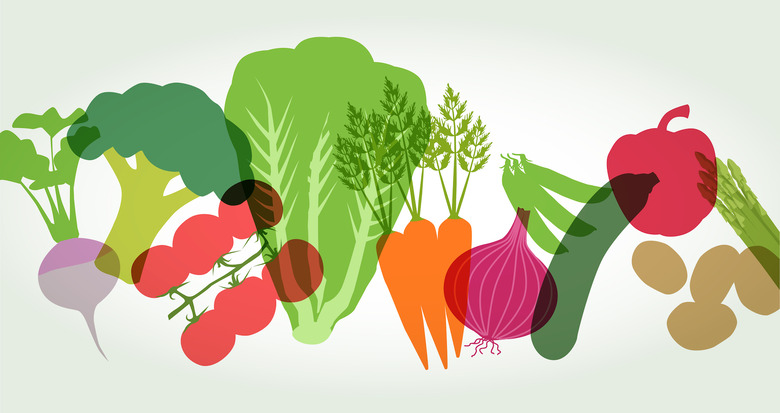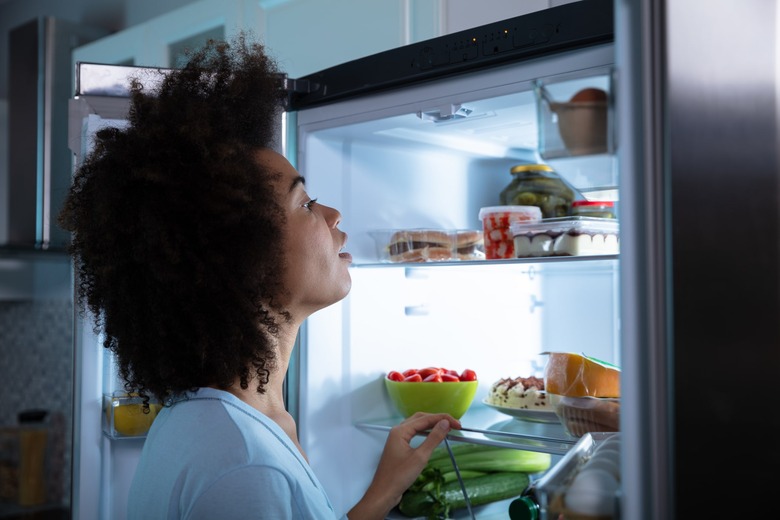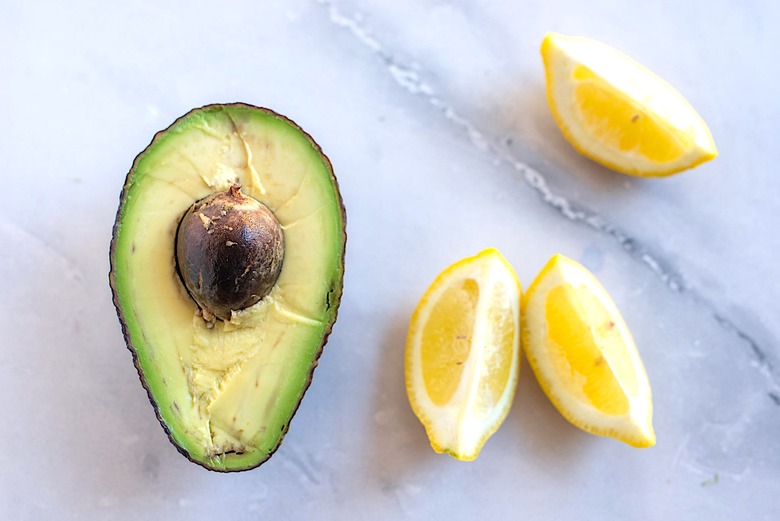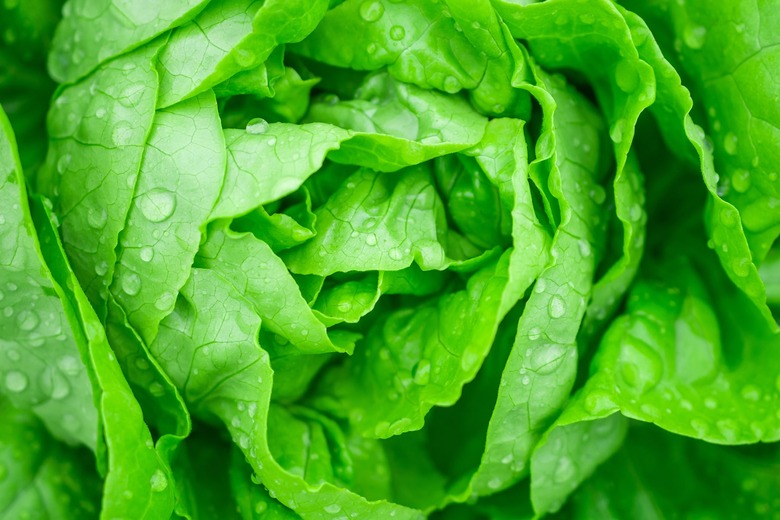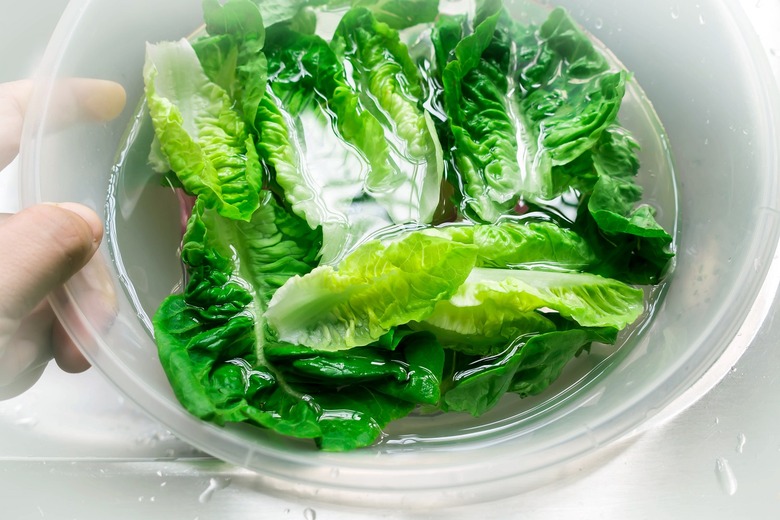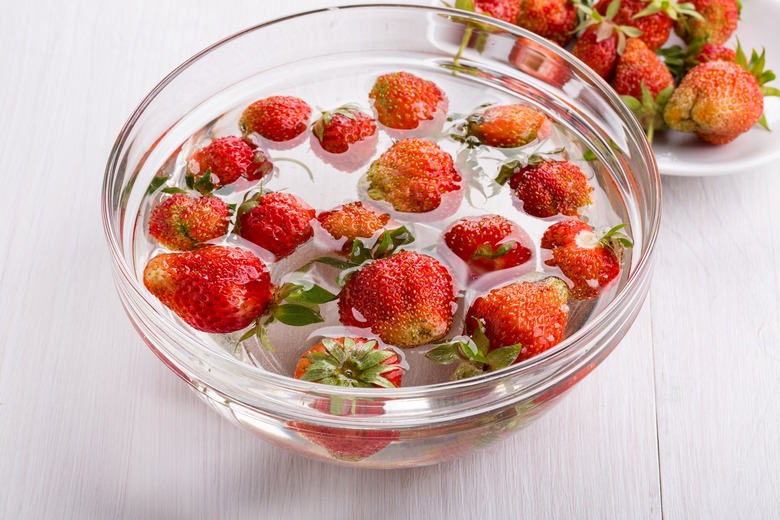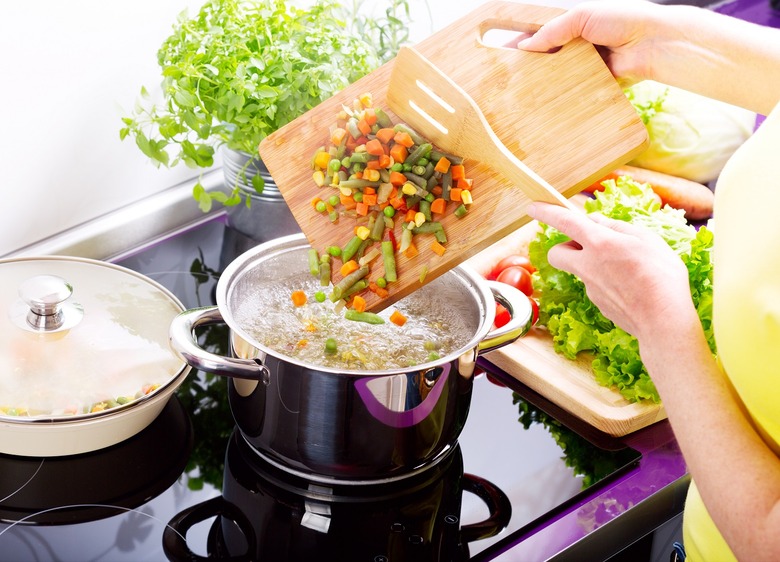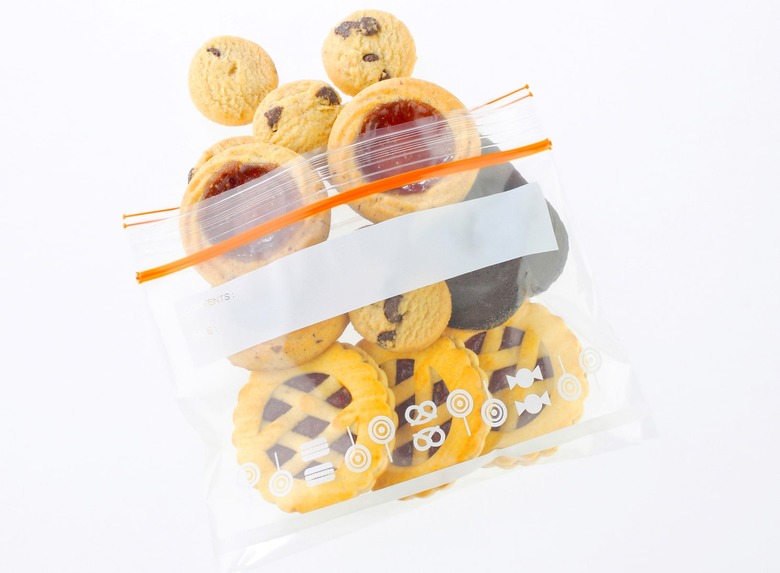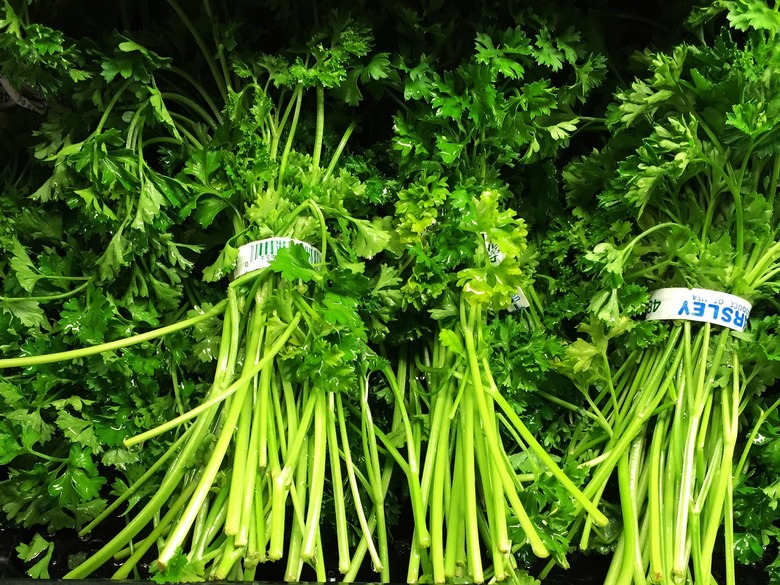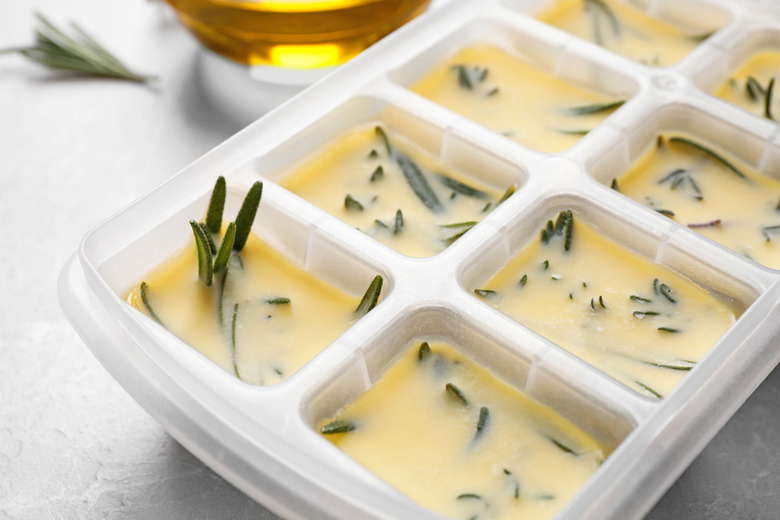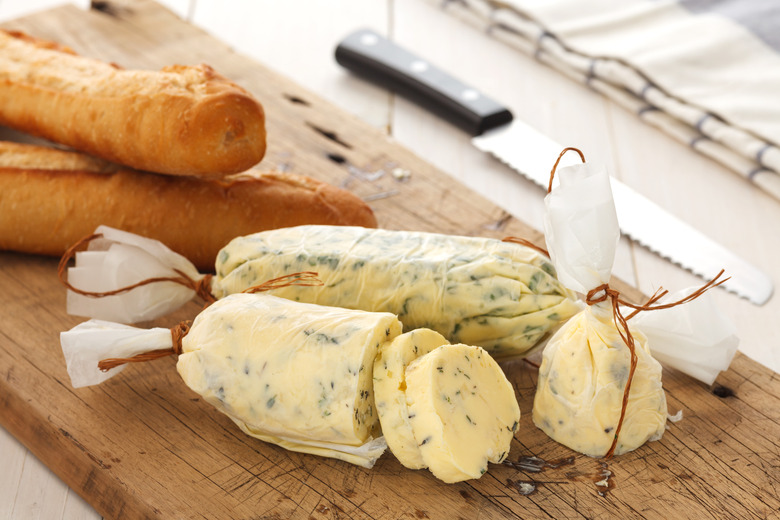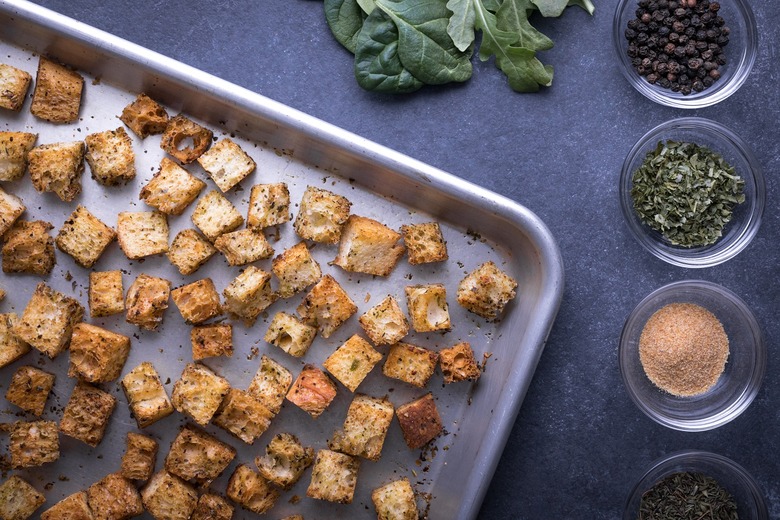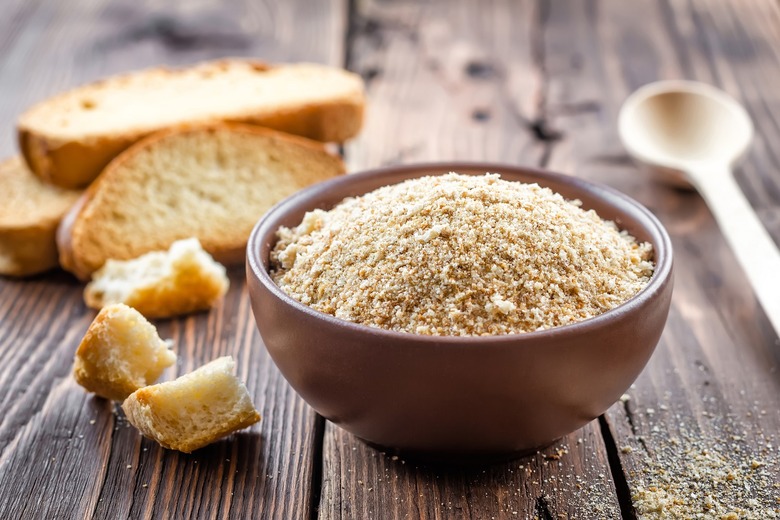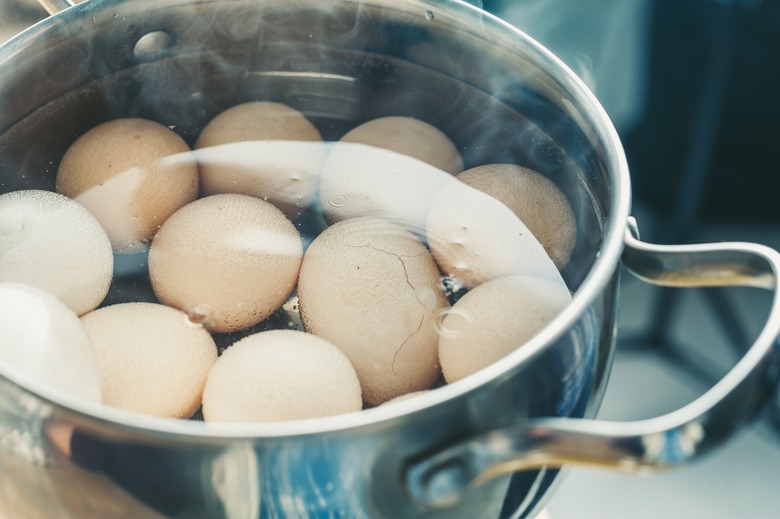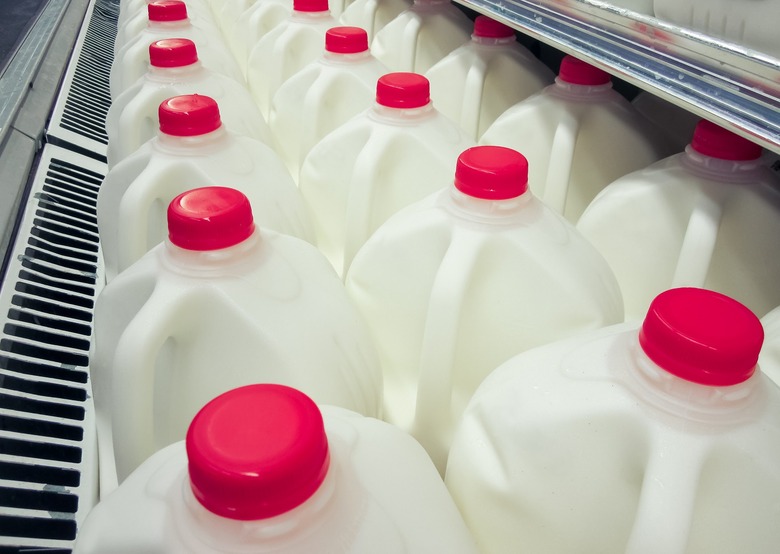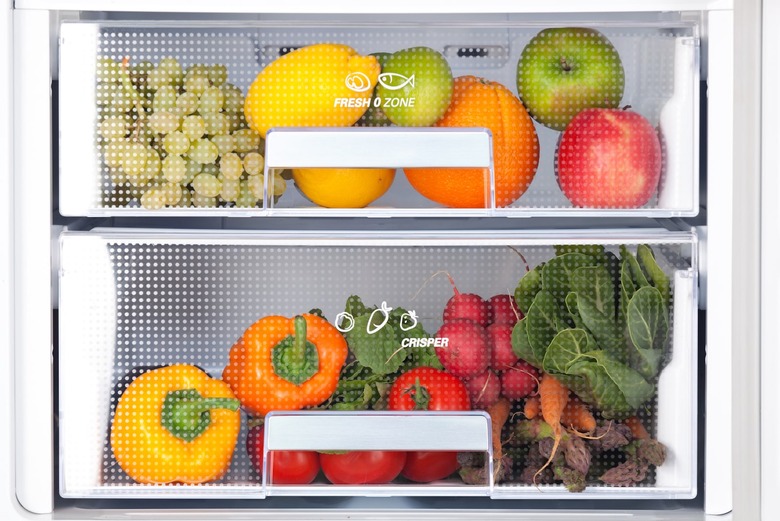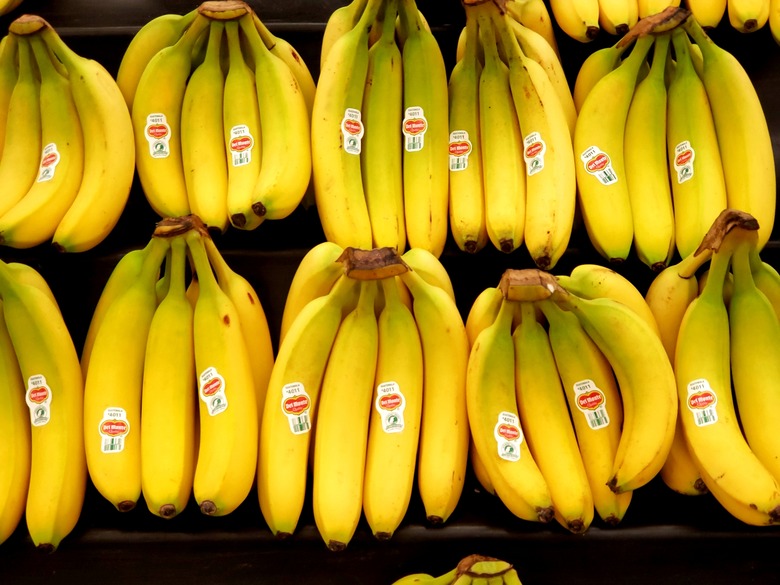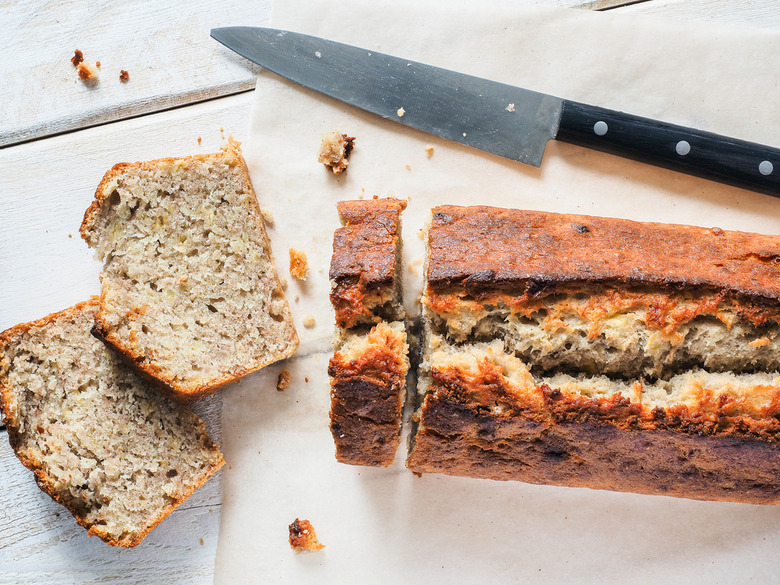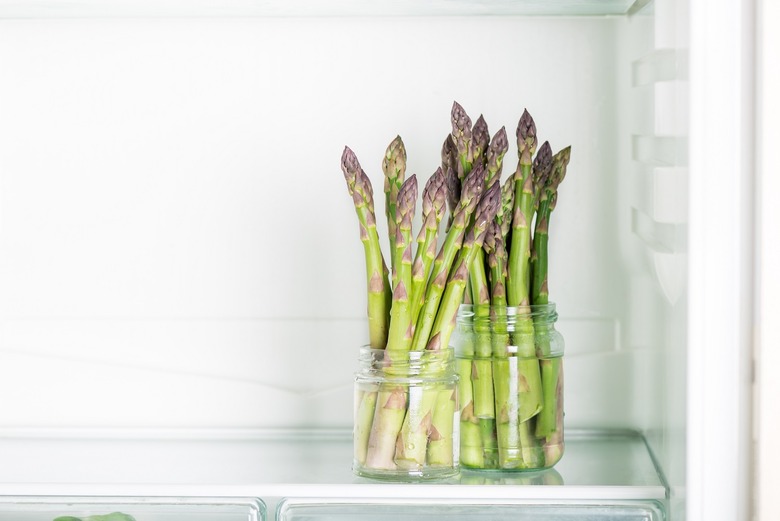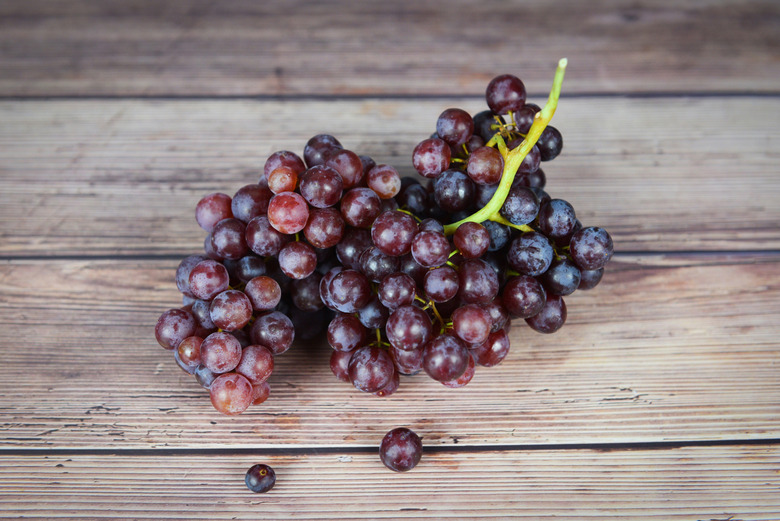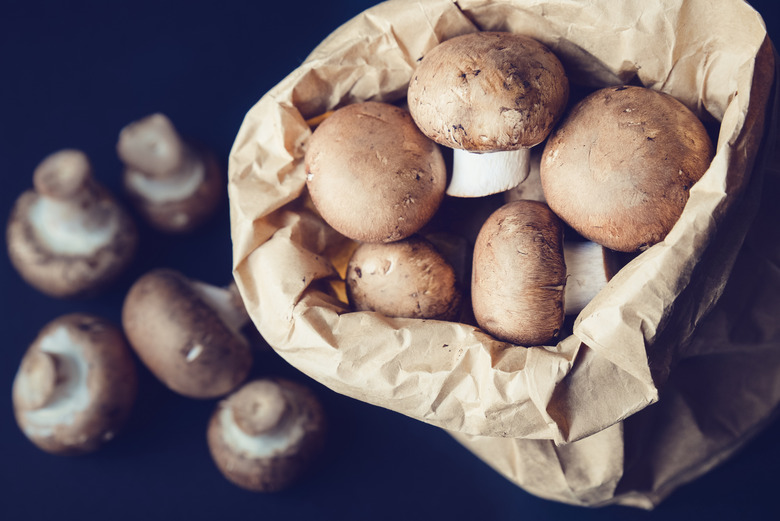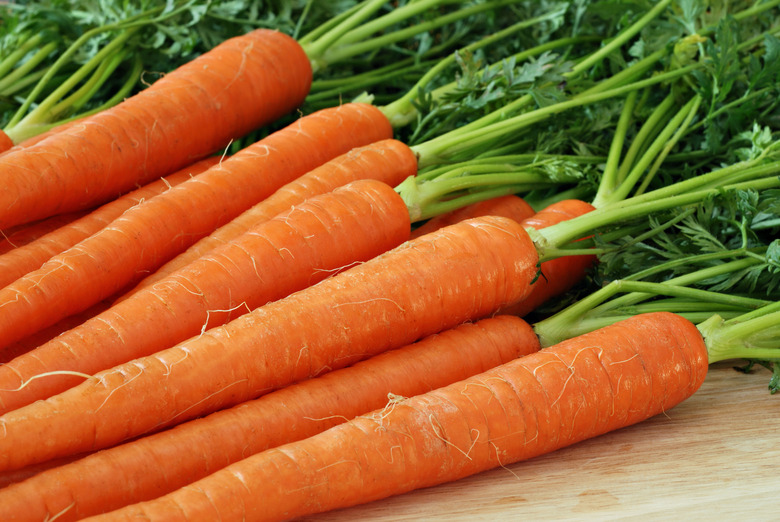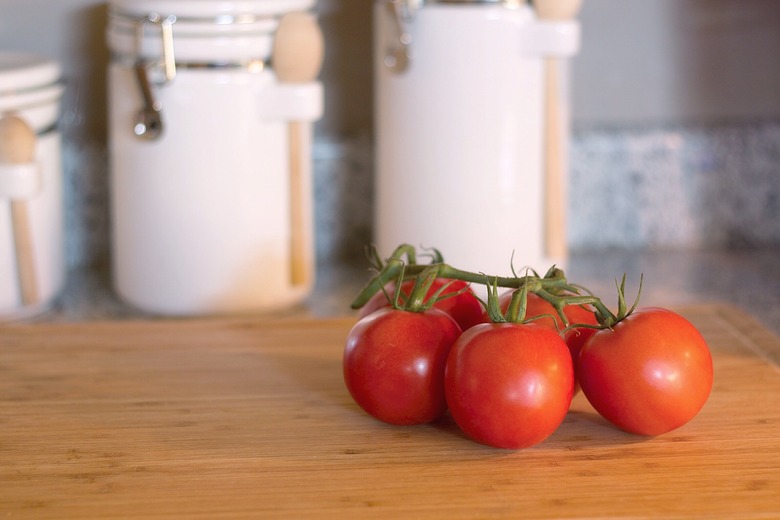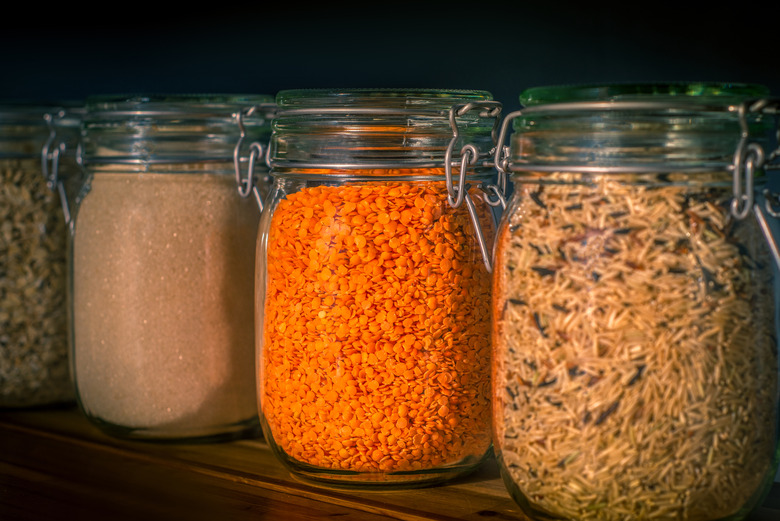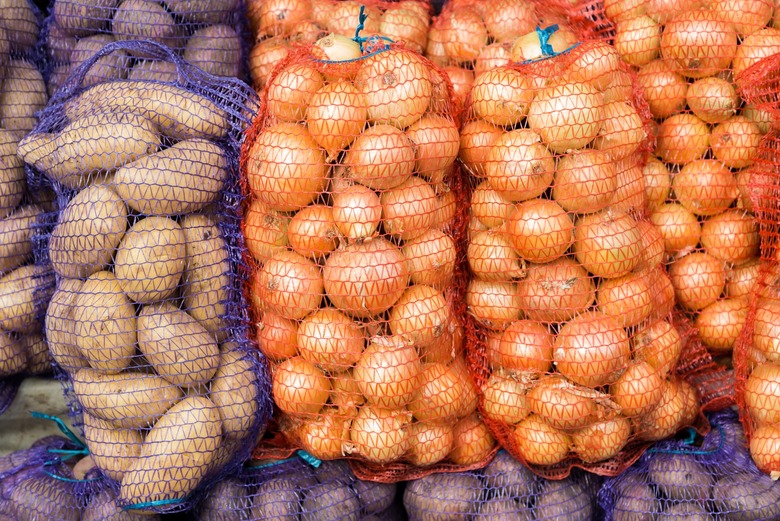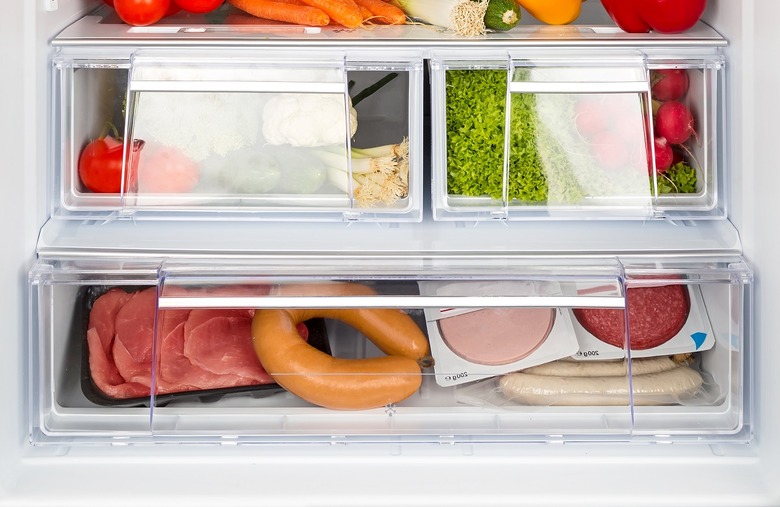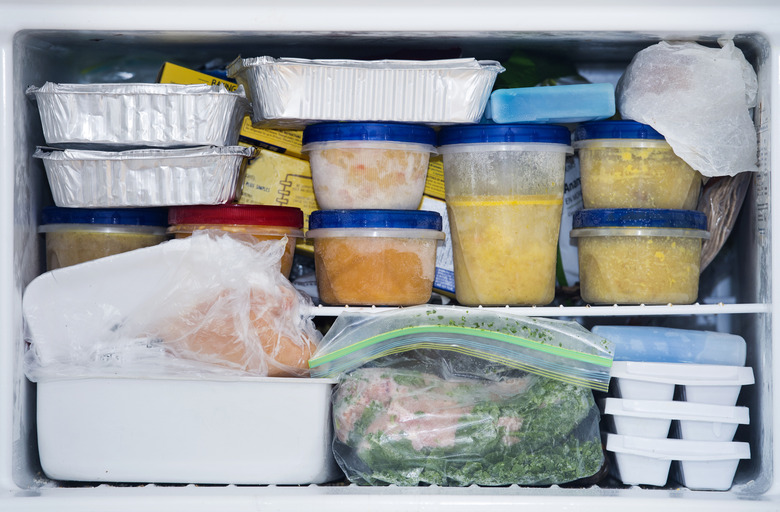How To Make Your Food Last Longer
There are some foods with unexpectedly long shelf lives. But for every can of beans or jar of honey, there are the foods that seem to spoil the moment you bring them home. In fact, you're likely storing many of your groceries wrong. Use these tips, tricks and leftover ideas for extending the life and use of your fresh produce, milk, meat and more. Because reducing food waste is better for your wallet and the environment.
Make sure your fridge is at the right temperature
One of the most important things you can do to keep your meat, produce, dairy and condiments chilled is to make sure your fridge is cool enough — but not too cold. According to the Food and Drug Administration, fridges should be at 40 degrees Fahrenheit or below; freezers should be at 0 degrees or below. Use a thermometer to make sure your fridge is at the right temperature. Doing so will ensure that your seasonal produce stays nice and fresh.
Save avocados with lemon juice
If you happen to have half an avocado left after using some to top your burger or put into your perfectly scrambled eggs, you can save the other half from oxidizing by squeezing a bit of lemon or lime juice on the exposed portion of the avocado. Citric acid acts as a natural preservative. Wrap the avocado tightly with plastic wrap and store it upside down in your fridge, or pop it into an avocado hugger, which is one of many sustainable kitchen products we love. However, if you want to speed up the ripening process, follow these helpful tips.
Wash produce just before you use it
Lettuce can quickly go from fresh and crisp to wilted and slimy if not stored correctly. You may be tempted to wash your fruits and veggies as soon as you get home from the grocery store, but that adds moisture to your produce, which can lead to the growth of mold and bacteria. Wash your produce right before you intend on eating it to keep it fresh.
Store greens with paper towels
Do, however, transfer the lettuce to a plastic or glass storage container as soon as you get home. Add a few sheets of paper towels at the top and bottom of the container. The paper towel should effectively absorb any excess moisture that would ordinarily result in lettuce going bad before you can use it, allowing you to use the leafy greens for refreshing, satisfying salads.
Revive old lettuce with cold water
Ever wonder why lettuce wilts? It's because it loses water. So while you don't want to store wet lettuce long term, to bring that lettuce back to life and make it last a bit longer, revive it by soaking the leaves in ice water for 30 minutes. This trick also works super well with cut veggies like carrot sticks.
Rinse berries in a mild vinegar solution
The one fruit you want to make sure you do wash early, however, is berries. To extend the fridge-shelf life of this heart-healthy food, give them a quick dip in a vinegar solution (one part vinegar to three parts water) then drain them, thoroughly dry them in a salad spinner lined with paper towels and put them away. The vinegar-water mixture helps kill any bacteria or spores that might turn berries into mush.
Turn old vegetables into stock
Stock is easy to make at home. If you notice your veggies and herbs start to turn, freeze them in a plastic bag and then repurpose them for some homemade vegetable stock. Avoid using starchy vegetables like potatoes and turnips for stock. But ginger, carrots, onions, garlic, mushrooms, leeks, thyme and parsley all make flavorful options. Once your stock is done, use it as a base for these hearty soups and stews.
Store cookies with bread
You may be tempted to keep your homemade cookies in that decorative cookie jar, but that won't keep them fresh. Keep your chewy cookies from turning dry by storing them with half a slice of bread inside in a zip-top plastic bag — the cookies will borrow moisture from the bread. If you're insistent on that cookie jar, you can place the baggie in the jar. And while you're thinking about creative cookie hacks, bake your next cookies with these unexpected ingredients.
Store fresh herbs in damp paper towels
Fresh herbs can make or break a number of recipes. To keep them fresher longer, wrap cilantro, marjoram, oregano, parsley, rosemary, sage and thyme in damp paper towels and then place them in a zip-top plastic bag. Basil, however, will brown in the fridge; to keep it fresh, put the stems in a jar of water and loosely cover with a plastic bag. If your herbs are already on their way out, don't throw them away; dehydrate them and serve them as a garnish for cocktails.
Freeze herbs in oil
While herbs may seem like one of those foods that don't freeze well, they can if you do it right. Fill an ice cube tray halfway with cut herbs, then top it off with some olive oil and place the ice cube tray in the freezer. Once the cubes are frozen solid, you can store them in a sealed plastic bag or container and use them to add flavor to dishes on a whim.
Turn herbs into a compound butter
If butter is more your style, you can also mash together herbs, a sprinkling of sea salt and some softened butter, roll it into a log, wrap it in parchment paper and store it in the freezer. Cooking with tons of butter is one of those reasons grandma's food was better than yours so use this compound butter to baste meat or vegetables toward the end of cooking.
Turn stale bread into croutons ...
If you want to keep your bread tasting fresh baked, then your best bet is actually to freeze it right away. But if you're looking for an easy way to finish off a loaf of bread, croutons are your new best friend. Simply cut your old bread into half-inch cubes, toss with olive oil and your choice of seasonings and bake at 350F for 15-20 minutes.
… Or breadcrumbs
You can also repurpose stale bread into breadcrumbs. Cut your bread into 1-inch pieces, pulse it in a food processor for about 15 or 20 seconds and bake in a 300-degree oven for 5-10 minutes. Combine these breadcrumbs with defrosted chicken to make chicken parmesan, one of the best meals you can make from the freezer.
Hard boil old eggs
Fresh eggs in their shell will last for three to five weeks in the fridge, but if week five approaches and you still haven't used those eggs, don't pitch them just yet. Hard boil your eggs and they will stay fresh for one more week. Hard boiled eggs are actually better when they're not made with super fresh eggs. Just make sure you know how to cook and peel hard-boiled eggs perfectly.
Store milk at the back of the fridge
Your fridge has different zones: a cold zone in the back of the top and middle shelves, a moderate zone in the front and a humid zone, which is better known as the crisper drawers. To keep milk fresh for longer, avoid putting it in the door and move it to a cold zone in the back of your fridge. If you know you won't use it up, you can also freeze milk to use at a later date; just defrost it overnight in the fridge. If you don't want to waste milk, consider these recipes to finish off that gallon of milk.
Keep vegetables in the crisper drawer
Most vegetables will be fine when left in their original packaging, but they thrive in the fridge and last longer when placed in the crisper drawer. Keep your broccoli, cauliflower, celery, cucumbers, beans, greens, radishes and more in this part of your fridge.
Wrap the tops of bananas with plastic wrap
Bananas are a great food to eat if you want to boost your immune system. The only issue is by the time one banana is ripe enough to eat, the whole bunch becomes too ripe in a matter of days, due to the release of ethylene gas. To slow down the process, wrap some plastic wrap tightly around the crown of the bunch, which should extend the shelf life of the bananas by a few days.
Transform old bananas into banana bread
If you still find that your bananas are too ripe to eat, use them to make a simple banana bread. Just mash three ripe bananas with flour, brown sugar, water, eggs, baking powder and some cinnamon and vanilla for one of the best dishes you can make using pantry staples.
Place veggies upright in water
Think of your greens like you would a bouquet of flowers. To keep vegetables like asparagus and scallions fresh, trim the bottoms and stand them upright in a jar with an inch or two of water. Cover the tips with a plastic bag so they don't pick up any strange fridge odors.
Keep grapes on the stem
You may be tempted to pluck your grapes off the stem for easy snacking, but doing so will cause them to rot quicker since the portion of the fruit attached to the stem is now exposed, leading to mold and bacteria growth.
Put mushrooms in a paper bag
If you buy pre-packaged mushrooms wrapped in plastic, you can keep them in their original containers. If you buy mushrooms individually, prolong their shelf life by transferring them from a grocery produce bag into a paper bag when you get home. With those extra days, add some mushrooms into an egg scramble — mushrooms are one of those unexpected ingredients that go great with eggs.
Remove the tops of root vegetables
Have you noticed that root vegetables, like carrots, radishes and turnips, with their fabulous flower-like tops, often go from deliciously crunchy to soft and wilted in no time at all? That's because veggie tops suck precious nutrients from vegetables. To make your root vegetables last longer, simply remove the tops before storing them separately in the fridge — those edible tops are full of nutrients and great in pestos, frittatas and more.
Store tomatoes on the counter
You may be tempted to keep your tomatoes in the fridge but that's doing them a massive disservice. They are actually one of those ingredients that you shouldn't refrigerate. Keep tomatoes at room temperature; anything below 55 degrees results in a lesser flavor. And while storing tomatoes stem-side-down may make them look more appealing, this actually bruises them, causing the fruit to go bad quicker. If you do notice them starting to turn, give them a boost by roasting your tomatoes, salsa or tomato sauce — all of which can then be stored in the fridge or freezer to extend their life even more.
Transfer grains to airtight containers
Moisture is the worst thing that can happen to whole grains like barley, oats, quinoa, wheat and wild rice. It can make them go bad before you get to use them in salads, grain bowls and more. To keep these dry goods better for longer, store them in airtight containers with tight-fitting lids. Glass, plastic and plastic bags with zippers all will do the trick.
Keep alliums and potatoes in ventilated bags
Don't store onions, potatoes, garlic or winter squashes in the fridge. Instead, store them in a cool, dry, well-ventilated space like the pantry. Keeping them in their original packaging can also help keep them better for longer. Often, the bags have holes in them meant to prevent spoilage. But whatever you do, don't keep onions and potatoes next to each other; gas from the onions will actually make the potatoes sprout and spoil faster.
Put meat on the bottom shelf of your fridge
Storing meat on the bottom shelf of your fridge has a double benefit: it's the coldest area, which keeps the meat fresh, plus it ensures that it can't touch or drip onto other food. If raw meat or its liquid touches fruits, veggies and other items in your fridge, they're no longer edible because bacteria can spread and cause food poisoning. So really this will help you extend the life if your produce too.
Freeze leftovers
Leftovers are great, but storing them in the fridge diminishes their max shelf life. Instead, put your leftovers in a container and store them in the freezer. This saves you from eating the same thing for days on end and also means that on those days when cooking is out of the question, you have a meal waiting for you in your freezer. These 50 easy weeknight dinner recipes are perfect to make and save for leftovers.
More from The Daily Meal:
You're Storing These Groceries All Wrong
How to Stock Your Pantry (and Take It to the Next Level)
15 Foods You Should Always Keep in Your Freezer
How Long Meat And Other Foods Last in the Fridge and Freezer
